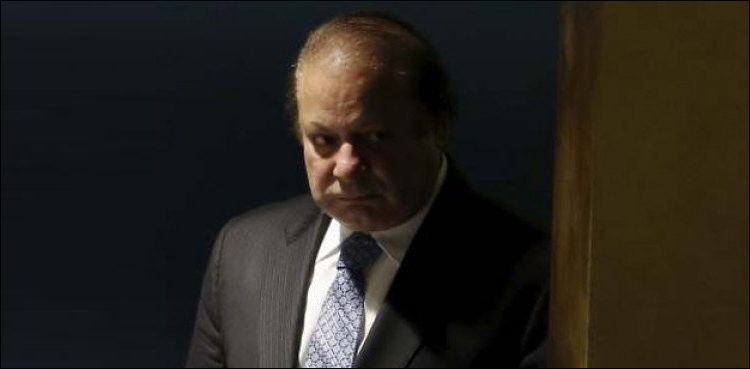 Former prime minister Nawaz Sharif was discharged from the Services Hospital and taken to his residence in Jati Umra on Wednesday, where a specialised intensive care unit (ICU) has been set up for his treatment.
Former prime minister Nawaz Sharif was discharged from the Services Hospital and taken to his residence in Jati Umra on Wednesday, where a specialised intensive care unit (ICU) has been set up for his treatment.
Nawaz Sharif’s daughter Maryam Nawaz was also at the Services Hospital and accompanied her father to the residence of the Sharif family. She was formally released from the National Accountability Bureau’s custody earlier in the day after her release orders were issued by an accountability court.
Nurses and doctors from the Sharif Medical City arrived at the Services Hospital, where head of the medical board Prof Dr Mehmood Ayaz handed over medical file and reports of the former prime minister to them.
In a statement, Pakistan Muslim League-Nawaz (PML-N) spokesperson Marriyum Aurangzeb said an intensive care unit has been set up at the former prime minister’s residence and the doctors have put a ban on people visiting him. She said due to low platelet count, there are chances that an infection may develop, and for the purpose the doctors have suggested setting up of a special medical unit in Jati Umra. She said the unit has been set up under the supervision of Sharif’s personal physician Dr Adnan Khan, adding that doctors will be present at the ICU round the clock. She said doctors have directed Maryam to ensure that strict safety measures are taken regarding her father’s health. She said that ICU ventilator and cardiac facilities have also been provided. Earlier, PML-N leader Maryam Nawaz was released on bail after her lawyers fulfilled requirements set forth by the Lahore High Court (LHC). The Kot Lakhpat Jail officials issued the release orders that were later sent to the Services Hospital for signatures.
The Lahore High Court (LHC) had on Monday granted bail to Maryam in the Chaudhry Sugar Mills case. The NAB prosecutor had opposed the PML-N leader’s plea, which Maryam had filed after her father Nawaz Sharif was hospitalized in critical condition. LHC had asked Maryam to submit her passport to satisfy ‘judicial conscience’ as prosecution had expressed apprehension that she might flee the country.